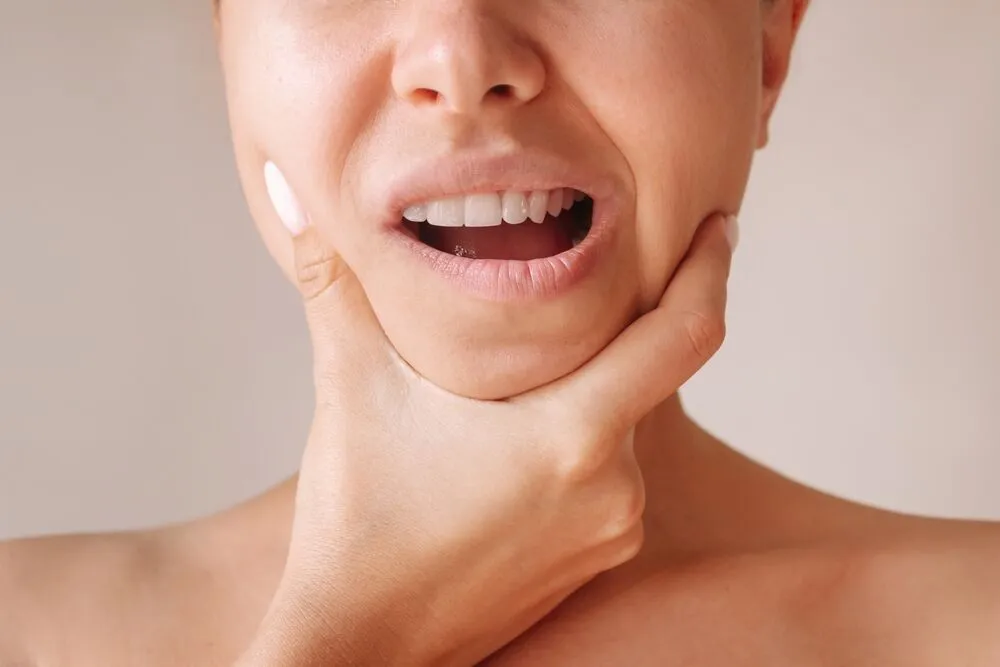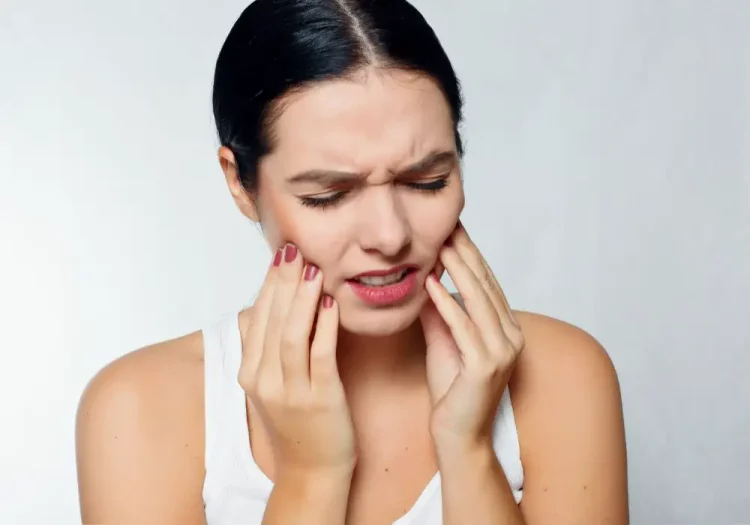Oral ulcers, also known as mouth sores, are small, painful lesions that can develop on the soft tissues inside the mouth, including the tongue, inner cheeks, gums, or the roof of the mouth. These ulcers can cause significant discomfort and interfere with daily activities such as eating, drinking, and speaking. While most oral ulcers heal on their own, understanding their causes, treatment options, and preventive measures can help manage and accelerate healing effectively.
Chapter 1: Understanding Oral Ulcers
1.1 What are Oral Ulcers?
Oral ulcers are open sores or lesions that appear in the mouth. They can vary in size and severity and are typically characterized by the following:
• A round or oval shape.
• A white or yellow center surrounded by a red halo.
• Pain or discomfort, especially when eating acidic or spicy foods.
1.2 Types of Oral Ulcers
1. Minor Aphthous Ulcers
• Small (less than 5mm in diameter).
• Heal within 7–14 days without scarring.
2. Major Aphthous Ulcers
• Larger and deeper, often exceeding 10mm.
• Take weeks to heal and may leave scars.
3. Herpetiform Ulcers
• Cluster of small, pinhead-sized ulcers that may merge.
• Often mistaken for cold sores but not caused by the herpes virus.
Chapter 2: Causes of Oral Ulcers
2.1 Common Triggers
1. Trauma or Injury
• Accidental biting of the cheek or tongue.
• Hard or abrasive foods like chips or crusty bread.
• Ill-fitting dentures or orthodontic braces.
2. Nutritional Deficiencies
• Lack of vitamin B12, iron, or folic acid.
3. Stress and Hormonal Changes
• Emotional stress or hormonal fluctuations can trigger ulcers.
4. Food Allergies or Sensitivities
• Allergic reactions to certain foods such as nuts, chocolate, or acidic fruits.
2.2 Medical Conditions
1. Immune System Disorders
• Conditions like Behçet’s disease, lupus, or celiac disease.
2. Viral or Bacterial Infections
• Herpes simplex virus (HSV) or Helicobacter pylori.
3. Gastrointestinal Disorders
• Crohn’s disease or ulcerative colitis.
4. Medications
• Non-steroidal anti-inflammatory drugs (NSAIDs) and beta-blockers.
Chapter 3: Symptoms of Oral Ulcers
3.1 Primary Symptoms
• Pain or discomfort in the affected area.
• Sensitivity to hot, cold, or spicy foods.
• Swelling or redness around the ulcer.
3.2 Secondary Symptoms (Severe Cases)
• Fever or malaise.
• Swollen lymph nodes.
• Difficulty eating or speaking.
Chapter 4: Diagnosing Oral Ulcers
4.1 Clinical Examination
Dentists or doctors examine the size, location, and appearance of ulcers to determine their type.
4.2 Laboratory Tests
• Blood tests to identify nutritional deficiencies or autoimmune conditions.
• Swab tests to detect bacterial or viral infections.

Chapter 5: How to Treat Oral Ulcers Effectively
5.1 Home Remedies
1. Saltwater Rinse
• Dissolve a teaspoon of salt in warm water and rinse the mouth.
• Reduces bacteria and soothes the affected area.
2. Baking Soda Rinse
• Mix baking soda with water to neutralize acidic environments.
3. Honey Application
• Honey has natural antibacterial properties and helps soothe pain.
4. Ice Packs
• Apply ice wrapped in a cloth to reduce swelling and numb pain.
5. Aloe Vera Gel
• Apply pure aloe vera gel directly to the ulcer for its anti-inflammatory effects.
5.2 Over-the-Counter Treatments
1. Topical Gels and Ointments
• Products like benzocaine or lidocaine provide pain relief.
2. Antiseptic Mouthwashes
• Chlorhexidine-based rinses prevent secondary infections.
3. Oral Lozenge
• Contains soothing agents like zinc or licorice root extract.
5.3 Prescription Medications
1. Corticosteroid Ointments
• Reduce severe inflammation and promote healing.
2. Antiviral Drugs
• Used if the ulcer is caused by herpes simplex virus.
3. Antibiotics
• Treat bacterial infections associated with ulcers.
4. Immune Modulating Medications
• For autoimmune-related ulcers, drugs like colchicine may be prescribed.
5.4 Advanced Treatments
1. Laser Therapy
• Targets ulcers to reduce pain and accelerate healing.
2. Cryotherapy
• Freezing therapy to alleviate pain and inflammation.
3. Nutritional Supplements
• Iron, vitamin B12, and folic acid to address deficiencies.
Chapter 6: Prevention of Oral Ulcers
6.1 Dietary Adjustments
• Avoid acidic, spicy, or crunchy foods that irritate the mouth.
• Increase intake of fresh fruits, vegetables, and whole grains.
6.2 Oral Hygiene Practices
1. Use a Soft-Bristled Toothbrush
• Prevents injury to gums and oral tissues.
2. Gentle Flossing
• Avoid aggressive flossing that may injure gums.
3. Antibacterial Mouthwash
• Helps control bacteria and reduces the risk of infection.
6.3 Lifestyle Modifications
• Manage stress through relaxation techniques like yoga or meditation.
• Avoid smoking and excessive alcohol consumption.
6.4 Regular Health Check-Ups
• Regular dental visits for professional cleaning and evaluation.
• Routine blood tests to identify and address deficiencies.
Chapter 7: When to See a Doctor
7.1 Warning Signs
• Ulcers lasting longer than two weeks.
• Frequent recurrence of ulcers.
• Accompanying symptoms such as fever, rash, or fatigue.
7.2 Specialist Referrals
• Dentists may refer patients to specialists for autoimmune or gastrointestinal evaluations.
Chapter 8: Natural Remedies and Holistic Approaches
8.1 Herbal Treatments
1. Licorice Root
• Antibacterial properties help reduce inflammation.
2. Chamomile Tea
• Soothes irritation and accelerates healing.
3. Turmeric Paste
• Anti-inflammatory and antiseptic properties.
8.2 Probiotics
• Restores balance in the oral and gut microbiomes.
Chapter 9: Frequently Asked Questions About Oral Ulcers
9.1 Can Stress Cause Ulcers?
Yes, emotional stress weakens the immune system and triggers outbreaks.
9.2 Are Oral Ulcers Contagious?
Most ulcers, like aphthous ulcers, are not contagious. However, ulcers caused by viral infections like herpes simplex are.
Conclusion
Oral ulcers are a common yet treatable condition. By understanding their causes and implementing effective remedies—ranging from simple home treatments to advanced medical care—you can alleviate pain and promote faster healing. Prevention through good oral hygiene, dietary adjustments, and stress management is key to reducing the recurrence of ulcers.
If ulcers persist or are accompanied by other symptoms, seek medical advice to address potential underlying conditions. With proper care, you can maintain a healthy and comfortable oral environment.













































Discussion about this post